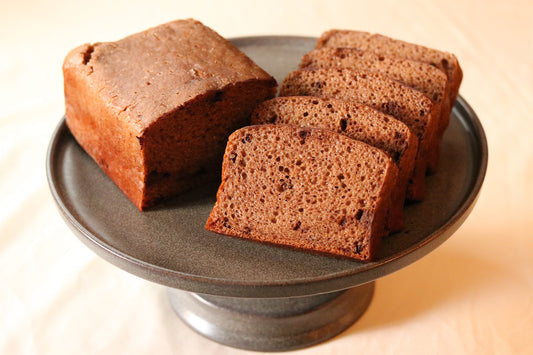Is a gluten-free diet effective against depression? Explaining its effects on the brain

The relationship between gluten and depression

Gluten-induced intestinal disturbances
The relationship between increased intestinal permeability and depression
When gluten is ingested, intestinal permeability increases, making it easier for harmful substances to enter the body . This phenomenon is also known as "leaky gut syndrome" and can cause an imbalance in the intestinal environment. When leaky gut syndrome occurs, inflammation in the intestines becomes chronic, leading to an abnormal immune system response .
This causes inflammation throughout the body, which is known to have adverse effects on the brain. Recent research has revealed that many patients with depression have increased intestinal permeability, suggesting a link between gluten-induced intestinal environment disruption and depression .
The effects of changes in the intestinal flora
Gluten intake also affects the balance of the intestinal flora. A balance between good and bad bacteria is important for maintaining a healthy intestinal environment, but gluten can disrupt this balance. Disturbances in the intestinal flora affect the production of neurotransmitters such as serotonin .
Serotonin stabilizes mood and increases resistance to stress, so a decrease in its production is thought to increase the risk of depression. Changes in the intestinal flora also affect brain function through the gut-brain axis. Metabolites produced by intestinal bacteria reach the brain via the blood and regulate the function of neurotransmitters. Disruption of the intestinal flora by gluten may impair this gut-brain axis.
Gluten and Brain Inflammation

Gluten-induced immune response and brain inflammation
Gluten can trigger an immune system overreaction in some people. People with celiac disease and non-celiac gluten sensitivity are particularly susceptible to an exaggerated immune response to gluten. The immune response triggered by gluten can lead to inflammation throughout the body .
This inflammation can also affect the brain, causing damage to nerve cells and impaired neurotransmitter function. Brain inflammation is known to increase the risk of various psychiatric disorders, including depression. The mechanism by which gluten-induced immune responses cause brain inflammation may be involved in the onset and worsening of depression symptoms .
The relationship between inflammatory cytokines and depression
The immune response to gluten promotes the production of inflammatory cytokines. Cytokines are substances that mediate communication between immune cells, and excessive production can cause inflammation . Interleukin-6 (IL-6), one of the inflammatory cytokines, has been reported to be detected at high levels in the blood of patients with depression. IL-6 regulates the function of neurotransmitters in the brain and increases vulnerability to stress .
In addition, inflammatory cytokines such as tumor necrosis factor-α (TNF-α) are also thought to be involved in the pathology of depression. These cytokines may reduce the function of nerve cells in the brain and inhibit neurogenesis . It has been suggested that the immune response to gluten promotes the production of inflammatory cytokines, causing inflammation in the brain and increasing the risk of depression.
Gluten-free diet may improve depression symptoms

Expected benefits of gluten-free diet
Improving mental health through improved intestinal environment
A gluten-free diet may improve your gut health and reduce your risk of depression . Avoiding gluten normalizes intestinal permeability, reducing the influx of harmful substances. A gluten-free diet also helps balance your gut flora .
Maintaining a gut environment dominated by beneficial bacteria promotes the production of neurotransmitters such as serotonin, leading to mood stabilization. Improving the gut environment may contribute to improving mental health through the gut-brain axis . A healthy gut environment is expected to properly regulate brain function and increase resistance to stress.
Suppressing brain inflammation and reducing depression
A gluten-free diet may suppress brain inflammation and alleviate depressive symptoms . Systemic inflammation caused by gluten-induced immune responses is known to have adverse effects on the brain. Avoiding gluten suppresses the immune system's excessive response and reduces the production of inflammatory cytokines . Inflammatory cytokines are thought to reduce the function of neurotransmitters in the brain and contribute to the pathology of depression. A gluten-free diet may also prevent damage to nerve cells in the brain and promote neurogenesis . Suppressing brain inflammation may help maintain nerve cell function, leading to improved depressive symptoms.
Research shows the effectiveness of gluten-free diets
Research has shown that a gluten-free diet can help improve symptoms of depression.
[ Research example on gluten-free diets and improvement of depression symptoms
| Research Subjects | Study design | result |
|---|---|---|
| People with celiac disease | Randomized controlled trial | Significant improvement in depressive symptoms in the gluten-free group |
| Non-celiac gluten-sensitive patients | Open-label study | Gluten-free diet reduces depression symptoms |
| Healthy people | Observational study | Suggesting a link between gluten intake and depressive symptoms |
A randomized controlled trial in patients with celiac disease showed a significant improvement in depressive symptoms in the gluten-free group . An open-label trial in patients with non-celiac gluten intolerance also showed that a gluten-free diet reduces depressive symptoms . Furthermore, observational studies in healthy individuals suggest a relationship between gluten intake and depressive symptoms .
People with a higher gluten intake tended to have a higher risk of depression. These research results support the possibility that a gluten-free diet may be effective in improving depressive symptoms. However, it is important to keep in mind that there are individual differences, and to proceed with dietary therapy in consultation with a medical professional.
Improvement of depressive symptoms in patients with celiac disease
Celiac disease is an autoimmune disease caused by gluten, which causes inflammation in the mucous membrane of the small intestine . Patients with celiac disease experience various digestive and systemic symptoms when they ingest gluten, and are also known to be at high risk of depression. Research on patients with celiac disease has shown that a gluten-free diet significantly improves depressive symptoms .
Eliminating gluten is thought to calm inflammation in the small intestine and improve nutrient absorption, which is thought to lead to a reduction in depressive symptoms. It has also been reported that patients with celiac disease who continue a gluten-free diet have a lower risk of long-term depression . It can be said that proper dietary therapy plays an important role in maintaining the mental health of patients with celiac disease.
Association between non-celiac gluten sensitivity and depression
Non-celiac gluten sensitivity (NCGS) refers to a condition in which a person is sensitive to gluten but does not meet the diagnostic criteria for celiac disease . People with NCGS may experience gastrointestinal and systemic symptoms when they ingest gluten. Recent studies suggest a link between NCGS and depression .
It has been reported that individuals with NCGS have a higher prevalence of depression compared to healthy individuals. Furthermore, studies of individuals with NCGS have shown that a gluten-free diet can improve depressive symptoms . Eliminating gluten is thought to reduce gastrointestinal and general symptoms and lead to improved mental health. Because the diagnosis of NCGS has not been established, careful evaluation is necessary, but a gluten-free diet may be effective in managing depressive symptoms in individuals with NCGS.
Things to consider when starting a gluten-free diet

The importance of diagnosing gluten intolerance
Testing and Diagnosis of Celiac Disease
Before starting a gluten-free diet, it's important to consider the possibility of celiac disease . Celiac disease is diagnosed through medical tests, including blood tests and small intestine biopsies. Blood tests for celiac disease measure autoantibodies, such as anti-tissue transglutaminase antibody (tTG-IgA) and anti-endomysium antibody (EMA-IgA) .
If these antibodies are positive, the patient is likely to have celiac disease. A histological evaluation by small intestinal biopsy is required for a definitive diagnosis. If there is evidence of atrophy or inflammation of the small intestinal mucosa, the patient is diagnosed with celiac disease. If a patient is diagnosed with celiac disease, they will need to follow a lifelong gluten-free diet. Dietary therapy based on a proper diagnosis is essential for preventing complications and managing symptoms.
How to identify non-celiac gluten sensitivity
The diagnosis of non-celiac gluten sensitivity (NCGS) is based on a diagnosis of exclusion . After celiac disease and wheat allergy have been ruled out, the relationship between gluten intake and symptoms is evaluated. To diagnose NCGS, it is necessary to confirm symptom improvement with a gluten-free diet and recurrence with the reintroduction of gluten . However, diagnostic criteria for NCGS have not yet been established, and careful judgment is required. If NCGS is suspected, a trial of a gluten-free diet for a certain period of time is recommended in consultation with a medical professional. If symptoms improve, continuing the gluten-free diet can be considered. However, due to the nutritional limitations of a gluten-free diet, the long-term effects must be considered. It is important to seek expert advice to maintain a proper nutritional balance.
Maintaining proper nutritional balance

How to Choose Gluten-Free Foods
When starting a gluten-free diet, it is important to choose the right substitute foods . Commercially available gluten-free foods may require nutritional considerations. When choosing gluten-free foods, keep the following in mind:
- Check the ingredients label to make sure no gluten-containing ingredients are used
- When it comes to processed foods, choose those that are labeled gluten-free.
- Check the nutritional information and choose foods that contain a balanced amount of nutrients.
- Eat foods rich in fiber and micronutrients
Choosing natural and organic foods can help you eat healthier gluten-free foods , and cooking at home can give you more choice in ingredients and help you create nutritionally balanced meals.
How to replenish nutrients that tend to be lacking
It is important to note that a gluten-free diet can easily lead to deficiencies in certain nutrients . Gluten-containing grains such as wheat and barley are sources of important nutrients such as dietary fiber, B vitamins, and iron. There are several ways to supplement nutrients that tend to be lacking in a gluten-free diet, including:
- Eat gluten-free grains such as quinoa and amaranth
- Eat plenty of fiber-rich foods such as beans, nuts, vegetables and fruits
- Eat an adequate amount of foods rich in B vitamins and iron (meat, seafood, eggs, dairy products, etc.)
- If necessary, use supplements to make up for any nutrients that may be lacking.
By eating a balanced diet, you can get all the nutrients you need even on a gluten-free diet . However, nutritional management needs to be tailored to your individual situation, so it's important to seek advice from a medical professional or registered dietitian.
The role of gluten-free diet in depression treatment

Combination with drug therapy and psychotherapy
A gluten-free diet may play a supporting role in treating depression . However, a gluten-free diet alone will not completely cure depression. Drug therapy and psychotherapy play a major role in treating depression. Antidepressants adjust the balance of neurotransmitters in the brain and are effective in improving depressive symptoms .
Additionally, psychological therapies such as cognitive behavioral therapy aim to improve symptoms by modifying thought patterns and behaviors associated with depression . A gluten-free diet can be expected to have a synergistic effect when used in combination with these treatments. It may help alleviate depressive symptoms through mechanisms such as improving the intestinal environment and suppressing inflammation in the brain.
The need to consult a doctor
It is essential to consult with a doctor before starting a gluten-free diet. Treatment plans for depression must be carefully considered based on each individual's situation. Doctors will comprehensively evaluate the severity of depression, the presence or absence of other physical illnesses, and living environment, and propose an appropriate treatment plan . It is also important to consult with a doctor before deciding to introduce a gluten-free diet. Even after starting a gluten-free diet, it is important to regularly consult with a doctor and report any changes in symptoms and your physical condition . If necessary, adjustments to the treatment plan or the use of other treatments will be considered.
Understanding individual differences and limitations
It is important to understand that whether a gluten-free diet is effective in improving depression symptoms varies greatly from person to person . A gluten-free diet is not suitable for everyone. It is also important to recognize that a gluten-free diet has its limitations. Depression is a disease that develops due to a complex interplay of factors, and it is thought to be difficult to completely cure with dietary therapy alone .
Treating depression requires a comprehensive approach tailored to each individual's situation, centered around drug therapy and psychotherapy. A gluten-free diet should only be considered a supplementary approach. It is important to seek the advice of a doctor or specialist to find a treatment method that suits you . A gluten-free diet is a method worth considering as one option for treating depression, but it should be approached carefully, taking into account individual differences and limitations.
Introducing Komeko's Palette's gluten-free menu
Gluten-free rice flour bread

Komeko's Palette offers bread made with 100% rice flour, which does not contain any wheat . It has the chewy texture unique to rice flour and a gentle sweetness not found in wheat bread. This product is recommended not only for those who want to avoid gluten, but also for health-conscious people . We are also committed to being completely additive-free, and are mindful of safety and security. People with wheat allergies or those who require a gluten-free diet can also enjoy our delicious bread .
Gluten-free rice flour bagels

Gluten-free bagels made with rice flour are also a popular item. They have a unique chewy texture and a wide variety of flavors, from plain to fruit. They are also delicious as bagel sandwiches, providing a satisfying and satisfying meal . Palette's bagels are made with beet sugar instead of refined sugar, resulting in a refined sweetness. Be sure to try these new and innovative bagels , which are both healthy and delicious .
Gluten-free rice flour dumplings

Komeko's Palette also sells gluten-free gyoza. The dough, made with rice flour, has a chewier texture than gyoza skins made with wheat flour. The skin has a gentle flavor that brings out the umami of the filling. Gluten-free gyoza are hard to find commercially. With Palette's rice flour gyoza skins, you can enjoy gyoza without worrying about gluten . They're also the perfect product for making homemade gyoza at home.
Gluten-free rice flour dumplings

Palette's gluten-free dumplings, made with rice flour, are also popular. They have a chewy texture and gentle sweetness that only rice flour can provide.
This is a recommended item for those who want to enjoy a healthy snack time.It can also be safely enjoyed by those with wheat allergies or those avoiding gluten.
Summary: Gluten-free diet is one option for treating depression
Previous research has provided various insights into the relationship between gluten and depression. Gluten may increase the risk of depression by disrupting the intestinal environment and causing brain inflammation. On the other hand, it has been suggested that a gluten-free diet may contribute to improving depressive symptoms by improving the intestinal environment and suppressing brain inflammation .
Patients with celiac disease and those with non-celiac gluten sensitivity have been reported to improve their depression symptoms with a gluten-free diet. However, proper diagnosis and nutritional management are essential when starting a gluten-free diet. It is important to consider the possibility of celiac disease and undergo appropriate testing. Also, because a gluten-free diet can easily lead to deficiencies in certain nutrients, it is important to maintain a balanced diet.
A gluten-free diet may play a supporting role in the treatment of depression. When used in combination with drug therapy and psychotherapy, a synergistic effect can be expected . However, the effects of a gluten-free diet vary from person to person, and it is not suitable for everyone. Depression is a disease involving complex intertwining factors, and it is thought to be difficult to completely cure with dietary therapy alone.
A gluten-free diet is worth considering as one of the options for treating depression, but it should be approached carefully, taking into account individual differences and limitations . It is important to find a treatment method that suits you while seeking advice from a doctor or specialist. A gluten-free diet may contribute to improving depression, but it is not a panacea. It is important for people suffering from depression to consult a medical institution and receive appropriate treatment without hesitation .
Consult with your doctor and consider incorporating a gluten-free diet as part of your treatment. Combining appropriate treatment with self-care can help you recover from depression. A gluten-free diet is one option that has the potential to be useful in treating depression.













